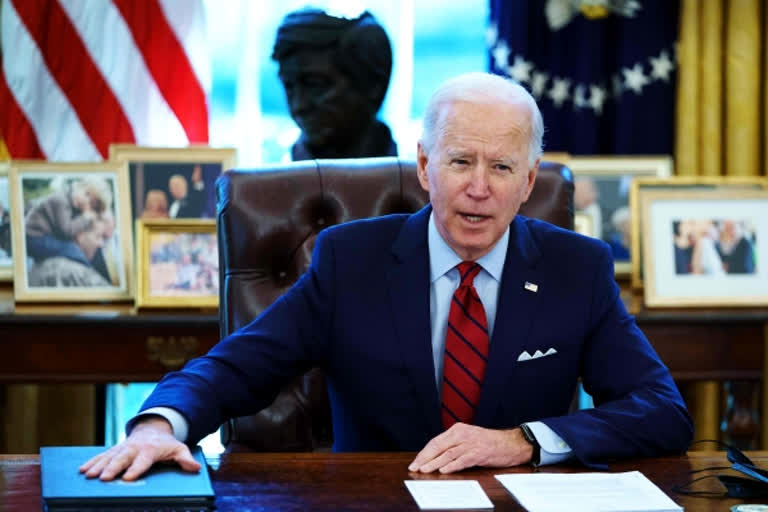Washington: President Joe Biden is marking St. Patrick's Day as he recommits the US to the Good Friday Agreement, which has come under increasing stress following the United Kingdom's exit from the European Union.
Biden, the latest president of Irish descent, held a virtual meeting Wednesday with Ireland's prime minister, Taoiseach Micheál Martin.
Before the meeting, the president attended a morning Mass at the aptly named St. Patrick's Church near his family home in Wilmington, Delaware, then returned to the White House to partake in the St. Patrick's Day celebrations, which were toned down due to the coronavirus pandemic.
In keeping with recent tradition, the water in fountains outside the White House ran green for the day.
Biden and Martin's virtual bilateral meeting — Biden's third with a foreign leader since he took office eight weeks ago — included the presentation of an engraved bowl of shamrock, which was sent ahead to Washington.
It ensured that a tradition that began in 1952 continued uninterrupted, if modified by COVID-19 concerns.
The White House said Biden would also drop in on Vice President Kamala Harris' meeting with Northern Ireland's First Minister Arlene Foster and Deputy First Minister Michelle O'Neill in a show of support for the Good Friday Agreement.
Signed in 1998, the Good Friday Agreement helped end sectarian violence that had raged for three decades over the issue of Northern Ireland unifying with Ireland or remaining part of the UK.
Biden told Martin that it is “critically important” that the Good Friday Agreement be maintained.
Also read:China blasts US 'evil past of genocide' at UN rights body
The UK's January 1 exit from the EU has created new tensions over trade and travel at the Irish border. EU authorities on Monday initiated legal action against the British government for violating the Brexit agreement's Northern Ireland Protocol, which was designed to keep the border open and protect the peace process in Northern Ireland.
That sparked an angry response from Northern Ireland's Democratic Unionist Party, which said the EU was more interested in protecting its internal market than the peace process.
The party, which wants to maintain ties to the UK, has criticised the protocol for treating the province differently from the rest of the country.
“Rather than showing concern for stability in Northern Ireland or respect for the principle of consent, Brussels is foolishly and selfishly focused on protecting its own bloc,” DUP leader Arlene Foster said.
